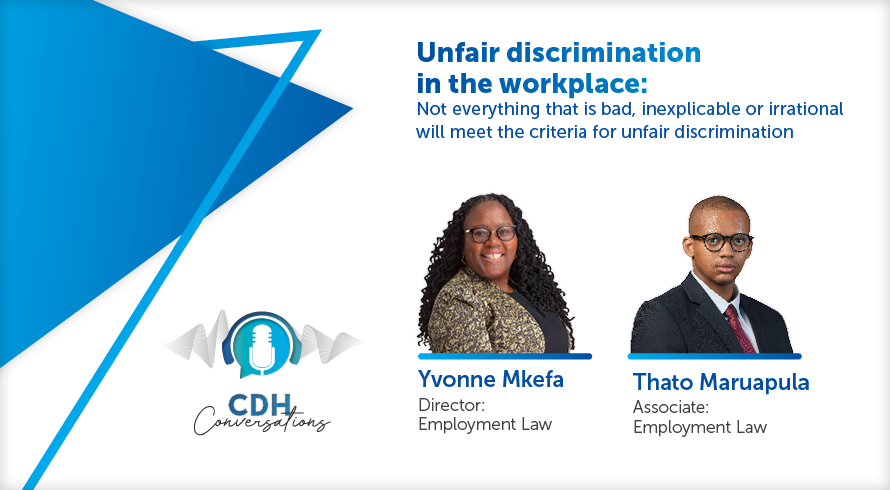Who is liable? COIDA & injuries not incidental to performance of employee’s duties
At a glance
- A senior employee was assaulted by fellow employees during a protest at the Premier's office, leading to physical and psychological injury and resignation from service.
- The employee sued the Premier and the Director-General, alleging negligence in ensuring safety during the protest. The respondents argued that the claim fell under occupational injury covered by COIDA.
- The Supreme Court of Appeal (SCA) ruled that the assault did not arise out of the employee's employment, emphasizing that violence is not incidental to an employee's duties, and employers can be held liable for injuries unrelated to work duties. COIDA does not cover negligence in protecting non-participating employees during protests.
The Appellant, a senior employee in the office of the Premier of Mpumalanga, was assaulted by fellow employees during protest action at the Premier’s offices which had been organised by the National Education, Health and Allied Workers Union (NEHAWU) and concerned labour issues. As a result of the protest action, the Appellant suffered physical and psychological injury, which resulted in her resigning from service citing that the work environment had become intolerable.
Following her resignation, the Appellant sued the Premier and the Director-General in the Office of the Premier (DG) (Respondents) alleging that her assault by the protesting colleagues was occasioned by the Respondents’ negligence arising from a failure to take adequate steps to ensure her safety and that of other colleagues during such protest.
The Respondents denied liability and raised a special plea, contending that her claim constituted an occupational injury for which she was entitled to compensation under The Compensation for Occupational Injuries and Diseases Act (COIDA) and was therefore excluded by section 35(1) of COIDA, which prevents an employee from recovering damages from an employer for an occupational injury.
The court a quo, per Roelofe AJ, in dismissing the delictual claim and upholding the Respondents’ defence held that the Appellant’s personal injury had been the result of an accident ‘arising out of’ the Appellant’s employment. The court a quo found the ‘accident’ had occurred at the Appellant’s place of work, while she was going about her normal duties and further that the Appellant’s role (formulating and implementation of Respondents’ policies) and her non-participation in the protest increased the danger to her posed by protesting employees.
On appeal, the SCA was required to decide whether the assault of the Appellant arose out of the Appellant’s employment and was accordingly sustained in an accident for the purposes of COIDA. An ‘occupational injury’ is defined as ‘a personal injury sustained as a result of an accident’. Whereas, an ‘accident’ is defined as ‘an accident arising out of and in the course of an employee’s employment and resulting in a personal injury’. With these definitions in context, the SCA accepted that, since the accident occurred in the Appellant’s workplace when she was discharging her duties, it undoubtedly arose out of her employment with her employer. However, it held that the real enquiry, the court needed to focus on was whether the risk (the assault in this case) was incidental to the Appellant’s employment.
Despite, in relation to the risk, the Respondents arguing that it was a foreseeable, albeit regrettable, reality that protest action sometimes turned violent, with a risk of physical injury to other employees, the SCA dismissed this contention, holding that the possibility of protest action turning violent and resulting in assaults on non-participating employees, in no way meant that the assaults were risks incidental to the employment of those assaulted. It found that the assaults where connected to the non-participating employees’ employment, but not to the performance of their duties.
In upholding the Appellant’s appeal, the SCA reiterated that the test is whether the statutory requirement that the accident arose out of the employee’s employment, as well as in the course of that employment, had been satisfied. In reaching a decision on whether the accident arose out of an employee’s employment, the courts are required to analyse the facts and determine whether on balance the accident arose out of the employee’s employment.
On an analyse of the facts, the SCA was of the view that the only connection between the incident and the Appellant’s employment was that she was assaulted at work. It held that it was clear on the evidence, that the Appellant’s assault had no correlation to her position or her duties or even the protest action by her colleagues, accordingly her injuries did not arise out of her employment.
It is clear from this case that employers can be held delictually liable for injury suffered by employees in the workplace where that injury is not related to the employee’s position and / or performance of duties at the workplace. The courts will always have to consider each case on its merits to determine on a balance whether the accident which resulted in the injury was linked to the employee’s employment and/or performance of duties. Employers need to be aware that the courts will likely find them liable where on the facts the injury sustained had no correlation to the performance of the employee’s duties, notwithstanding the employee’s presence at the workplace.
An employer’s negligence in failing to take necessary and adequate steps to protect non-participating employees during protest action will not be covered by COIDA notwithstanding the incident arising at the workplace and in the course of the non-participating employees discharging their duties. As reiterated by the SCA, violence (attacks on a person’s dignity and bodily integrity) cannot be said to be incidental to an employee’s duties and accordingly cannot be held to be part of the job as was argued by the Respondents.
The information and material published on this website is provided for general purposes only and does not constitute legal advice. We make every effort to ensure that the content is updated regularly and to offer the most current and accurate information. Please consult one of our lawyers on any specific legal problem or matter. We accept no responsibility for any loss or damage, whether direct or consequential, which may arise from reliance on the information contained in these pages. Please refer to our full terms and conditions. Copyright © 2026 Cliffe Dekker Hofmeyr. All rights reserved. For permission to reproduce an article or publication, please contact us cliffedekkerhofmeyr@cdhlegal.com.
Subscribe
We support our clients’ strategic and operational needs by offering innovative, integrated and high quality thought leadership. To stay up to date on the latest legal developments that may potentially impact your business, subscribe to our alerts, seminar and webinar invitations.
Subscribe




